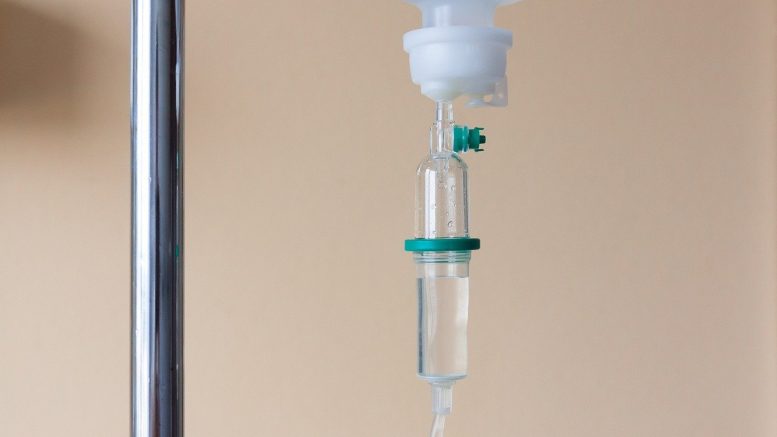On February 12, the U.S. Food and Drug Administration (FDA) approved Cosela (trilaciclib) as the first therapy in its class to reduce the frequency of chemotherapy-induced bone marrow suppression in adults receiving certain types of chemotherapy for extensive-stage (when the cancer has spread beyond the lungs) small cell lung cancer. Cosela may help protect bone marrow cells from damage caused by chemotherapy by inhibiting cyclin- dependent kinase 4/6, a type of enzyme.
“For patients with extensive-stage small cell lung cancer, protecting bone marrow function may help make their chemotherapy safer and allow them to complete their course of treatment on time and according to plan,” said Albert Deisseroth, M.D., Ph.D., supervisory medical officer in the Division of Non-Malignant Hematology in the FDA’s Center for Drug Evaluation and Research. “Today’s approval of Cosela will give patients a treatment option that can reduce the occurrence of a common, harmful side effect of chemotherapy.”
Lung Cancer Statistics
Lung cancer makes up about 13% of all new cancer diagnoses, making it the second most common cancer in both men and women. This year, an estimated 228,820 adults (116,300 men and 112,520 women) in the United States will be diagnosed with lung cancer. This includes people diagnosed with both SCLC (small-cell lung carcinoma) and NSCLC (Non-small-cell lung carcinoma). About 13% of people diagnosed with lung cancer have SCLC.
Lung cancer is the leading cause of cancer death for men and women. It is estimated that 135,720 (72,500 men and 63,220 women) deaths from this disease will occur this year. Death rates from lung cancer have declined by 51% since 1990 in men and 26% in women since 2002. From 2008 to 2017, the death rates for men with the disease dropped by 4% each year. The death rates for women declined 3% per year. Research indicates that these declines are due to more people not smoking, more people quitting smoking, and medical advances in diagnosis and treatment.
The 5-year survival rate tells you what percent of people live at least 5 years after the cancer is found. Percent means how many out of 100. The general 5-year survival rate for people with SCLC is 6%. For people with localized SCLC, which means the cancer has not spread outside of the lung, the overall 5-year survival rate is 27%. For regional SCLC, which means the cancer has spread outside of the lung to nearby areas, the 5-year survival rate is 16%. If the cancer has spread to a distant part of the body, the 5-year survival rate is 3%. However, some people with advanced lung cancer can live many years after diagnosis.
Cosela
Cosela may help protect the normal bone marrow cells from the harmful effects of chemotherapy. The effectiveness of Cosela was evaluated in three randomized, double-blind, placebo-controlled studies in patients with extensive-stage small cell lung cancer. Combined, these studies randomly assigned 245 patients to receive either an infusion of Cosela in their veins or a placebo before chemotherapy. The studies then compared the two groups for the proportion of patients with severe neutropenia (a very low count of white blood cells called neutrophils) and the duration of severe neutropenia in the first cycle of chemotherapy.
In all three studies, patients who received Cosela had a lower chance of having severe neutropenia compared to patients who received a placebo. Among those who had severe neutropenia, patients who received Cosela, on average, had it for a shorter time than patients who received a placebo.
The most common side effects of Cosela include fatigue; low levels of calcium, potassium and phosphate; increased levels of an enzyme called aspartate aminotransferase; headache; and infection in the lungs (pneumonia). Patients should also be advised about injection site reactions, acute drug hypersensitivity, interstitial lung disease/pneumonitis (lung tissue inflammation) and embryo-fetal toxicity.





Be the first to comment on "FDA Approves Cosela"